Geographical Location and Demographics
Dire Dawa is a vibrant and historically significant city located in eastern Ethiopia. Known for its diverse population and strategic geographical position, it serves as a major commercial and transportation hub. The city’s demographics reflect a rich tapestry of ethnic groups and cultures, contributing to its unique social fabric and dynamic urban environment.
Geographical Setting
Dire Dawa is a significant city in Ethiopia, situated in the eastern part of the country. It serves as an important commercial and transportation hub, contributing to the region’s development. The city is located near the border with Somaliland and Djibouti, making it a strategic point for trade and connectivity. Its geographical setting offers a mix of plains and semi-arid landscapes, with a climate that supports diverse agricultural activities in surrounding areas.
- Geographical Location:
- Located in the eastern part of Ethiopia, close to the border with Somaliland and Djibouti.
- Coordinates approximately 9.6° N latitude and 42.1° E longitude.
- Situated in a semi-arid region with a transitional landscape between highlands and lowlands.
Demographics
Dire Dawa has a diverse population comprising various ethnic groups and cultures. The city is known for its multicultural environment, with Ethiopians, Somalis, Oromos, and other communities living and working together. The population size has been steadily increasing, reflecting its importance as a trade and industrial center. The linguistic landscape is equally diverse, with Amharic, Somali, Oromo, and others spoken among residents. The city’s demographic profile contributes to its vibrant social and cultural life, making it a unique melting pot within Ethiopia.
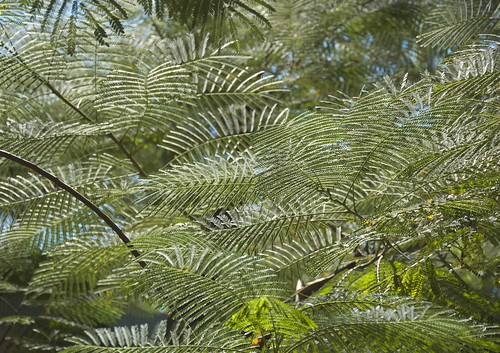
Population Overview
Dire Dawa is a vibrant city located in eastern Ethiopia, serving as one of the country’s major urban centers. It is situated along the historic trade routes, close to the borders ofDjibouti and Somali regions, which contributes to its diverse cultural and economic significance. The city’s geographical setting features a semi-arid climate with a mix of lowlands and highlands, supporting a variety of agricultural activities and trade networks.
The demographics of Dire Dawa are characterized by a diverse population representing various ethnicities and cultures. The city has a balanced mix of Somali and Oromo ethnic groups, along with other smaller communities, making it a melting pot of cultural interactions. The city is predominantly Muslim, with influence from other religions, including Christianity, reflected in its religious institutions and festivals.
The population overview indicates a steady growth over recent decades, with estimates suggesting a population of over 300,000 residents. The urban population is composed of both long-established residents and newcomers, particularly due to its strategic importance as a commercial hub. The demographic structure features a young population, with a significant percentage under the age of 30, contributing to a dynamic labor force and vibrant community life.
Urban and Rural Distribution
Dire Dawa is a prominent city in eastern Ethiopia, situated approximately 515 kilometers east of Addis Ababa. It lies along the traditional route connecting Ethiopia with Djibouti, making it a key commercial and transportation hub in the region. The city is located within the Harari Regional State, characterized by its semi-arid climate and diverse topography including plains and hills.
The demographic makeup of Dire Dawa is diverse, comprising various ethnic groups such as the Harari, Oromos, Somalis, and Amharas. The population is a mix of urban residents and rural inhabitants, with a significant portion engaged in trade, industry, and services. As of recent estimates, Dire Dawa’s population exceeds 200,000 residents, reflecting its importance as a regional center.
Regarding urban and rural distribution, Dire Dawa itself is primarily urban, with organized neighborhoods, markets, and infrastructure supporting dense population clusters. Outside the city, rural communities are mainly engaged in agriculture, pastoralism, and small-scale trading. The urban-rural divide highlights the city’s role as a thriving urban center while the surrounding regions maintain traditional livelihood practices, contributing to the socio-economic fabric of the area.
Historical Background
Dire Dawa, one of Ethiopia’s major cities, boasts a rich and diverse historical background that reflects the country’s complex cultural and political evolution. Located in the eastern part of Ethiopia, it has long served as a vital trading hub and a melting pot of various ethnic groups. Its strategic position along ancient trade routes has contributed to its historical significance, shaping its development over centuries and influencing its role in Ethiopia’s national history.
Historical Significance
Dire Dawa is one of Ethiopia’s oldest and most historically significant cities, serving as a vital commercial and cultural hub in the eastern part of the country. Established in the early 20th century, it grew rapidly due to its strategic location along major trade routes and the construction of the Ethiopian railway connecting Addis Ababa to the port of Djibouti. The city has historically been a melting pot of diverse ethnic groups, religions, and cultures, reflecting Ethiopia’s rich and complex history. Throughout different periods, Dire Dawa has played an important role in Ethiopia’s trade, political developments, and regional interactions, making it a key point of interest in the nation’s historical landscape.
Its historical significance extends beyond commerce, as Dire Dawa has witnessed numerous pivotal events, including colonial influences, regional conflicts, and modernization efforts. The city’s diverse architecture, historic landmarks, and vibrant marketplace embody its legacy as a center of multicultural exchange and resilience. Today, Dire Dawa remains a symbol of Ethiopia’s historical evolution and cultural diversity, continuing to influence the nation’s economic and social development.
Role in Ethiopian History
Dire Dawa, located in eastern Ethiopia, has a rich historical background as a major trading center and strategic location connecting various regions of the country. Established in the early 20th century, it grew rapidly due to its importance in regional commerce and its proximity to the border with Djibouti. The city played a crucial role in Ethiopia’s economic development, especially through the expansion of the railway and transportation networks.
Throughout Ethiopian history, Dire Dawa has served as a cultural and commercial hub, fostering diverse communities and acting as a gateway for international trade. Its strategic significance contributed to its development during the reign of Emperor Haile Selassie and the subsequent modernization efforts. The city also became a symbol of Ethiopian resilience and unity, reflecting the country’s diverse ethnic and cultural heritage.
Historical Landmarks
Dire Dawa, situated in eastern Ethiopia, boasts a rich historical background dating back centuries as a vital trading hub and cultural crossroads. Its strategic location along ancient caravan routes contributed to its development as a center of commerce and diverse cultural exchange. Over the years, the city has grown through a blend of local traditions and influences from neighboring regions and countries, shaping its unique identity.
Among the notable historical landmarks in Dire Dawa is the famous Dire Dawa Railway Station, built during the early 20th century, which symbolizes Ethiopia’s progress in modern transportation and its ties to the global trade network. The city also features the oldest remaining part of the old town, where traditional markets, colonial-era buildings, and mosques reflect its historical significance. Additionally, the Grand Mosque of Dire Dawa is a prominent religious monument that highlights the city’s religious and cultural heritage.
Economic Activities
Economic activities in Dire Dawa, Ethiopia, play a vital role in shaping the region’s development and prosperity. As a key commercial hub, Dire Dawa boasts diverse industries, including trade, manufacturing, and services that contribute significantly to both local and national economies. Understanding the main economic drivers of this city provides insight into its growth potential and the opportunities it offers for residents and investors alike.
Agriculture and Livestock
Dire Dawa, a major city in Ethiopia, has a diverse economy heavily centered around agriculture and livestock. The region’s fertile land and favorable climate support various farming activities, contributing significantly to the local economy and food security.
- Agriculture is a primary economic activity, with farmers cultivating crops such as maize, teff, sorghum, and coffee.
- The region benefits from both subsistence farming and commercial agriculture, enhancing livelihood opportunities for residents.
- Livestock rearing is equally important, with cattle, sheep, goats, and camels raised for meat, milk, and other products.
- Livestock activities support local markets and contribute to regional trade in animals and animal products.
- Agricultural practices are often small-scale, but there are ongoing efforts to modernize and increase productivity through improved techniques and access to markets.
- The interplay of agriculture and livestock bolsters the economy of Dire Dawa, making it a vital sector for sustainable development in the region.
Commercial and Small-scale Industries
Dire Dawa, located in Ethiopia, is a significant hub for economic activities, commercial enterprises, and small-scale industries. Its strategic position as a trading center has contributed greatly to the region’s economic development.
- Trade and commerce form the backbone of Dire Dawa’s economy, with bustling markets that facilitate the exchange of goods such as textiles, grains, and livestock.
- Numerous small-scale industries operate in the city, including textile weaving, food processing, and handicrafts, providing livelihood to many local residents.
- Transportation services, including freight and passenger transport, are vital for connecting Dire Dawa to other parts of Ethiopia and neighboring countries.
- The presence of the Dire Dawa Industrial Park encourages manufacturing activities, supporting the growth of local industries and attracting investments.
- Agricultural produce from surrounding rural areas also contributes to the local economy through trade and processing activities.
In summary, Dire Dawa’s diverse economic activities, vibrant commercial sector, and flourishing small industries play a crucial role in its ongoing development and regional importance in Ethiopia.
Emerging Sectors and Investment Opportunities
Dire Dawa, Ethiopia, has been experiencing significant growth in various economic activities, positioning itself as a key commercial hub in the region. The city boasts a diverse economy primarily driven by trade, manufacturing, agriculture, and transportation services, supported by its strategic location as a gateway to neighboring countries. Emerging sectors such as logistics, information technology, and tourism present promising opportunities for investors seeking to capitalize on the city’s expanding infrastructure and economic potential.
Investment opportunities in Dire Dawa are abundant, especially in the development of industrial parks, agro-processing industries, and renewable energy projects like solar and wind power. The Ethiopian government’s focus on infrastructure development, including the expansion of the railway and road networks, further enhances the city’s prospects for attracting regional and international investments. As the city continues to grow, it offers a fertile environment for entrepreneurs and investors looking to tap into Ethiopia’s burgeoning market and emerging sectors.
Cultural Heritage and Society
Cultural heritage and society are deeply interconnected, shaping the identity and traditions of communities around the world. In the context of Dire Dawa, Ethiopia, this relationship is particularly evident through its rich history, diverse cultural expressions, and social practices. Understanding how cultural heritage influences societal values and development in Dire Dawa offers valuable insights into the region’s unique identity and ongoing cultural preservation efforts.
Ethnic Composition
Dire Dawa, a vibrant city in Ethiopia, is renowned for its rich cultural heritage and diverse ethnic composition. It is a melting pot of various ethnic groups, including the Harari, Oromo, Somali, and Amhara communities, each contributing uniquely to the city’s cultural landscape. The coexistence of these groups has fostered a tolerant society where different traditions, languages, and religious practices flourish side by side.
Cultural heritage in Dire Dawa is reflected through its historic sites, traditional music, and diverse culinary traditions. The city’s architecture and marketplaces showcase a blend of local and colonial influences, symbolizing its significance as a historical trading hub. Society here is shaped by the interconnectedness of various ethnic groups, promoting social cohesion and mutual respect.
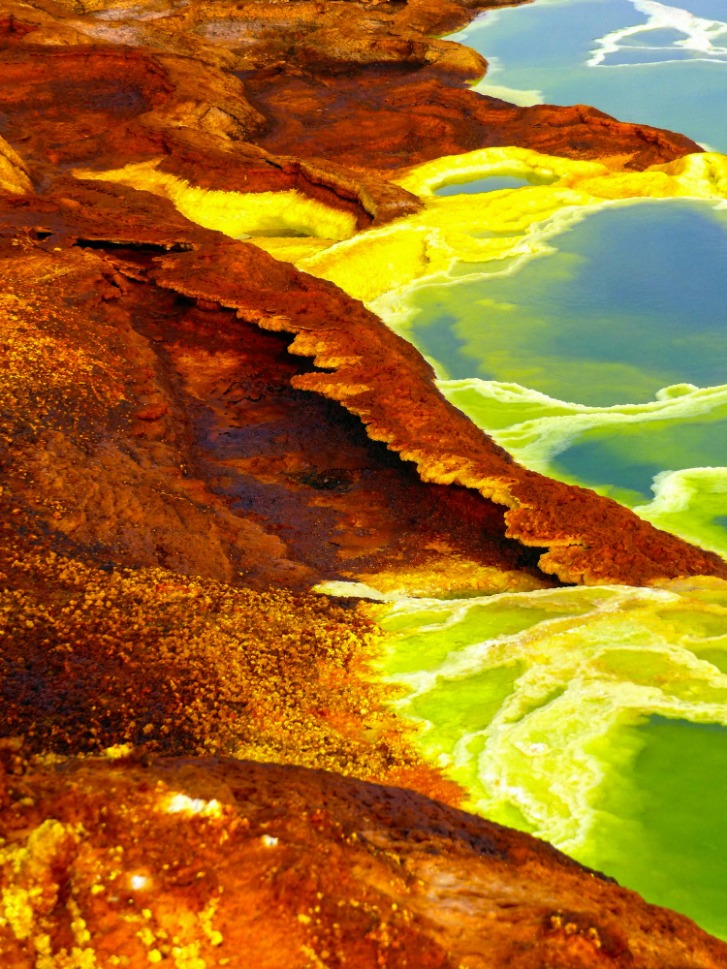
The ethnic diversity of Dire Dawa not only enriches its cultural fabric but also plays a vital role in promoting social harmony and resilience. The city exemplifies how multicultural societies can thrive when mutual understanding and respect are prioritized, making it a unique and dynamic part of Ethiopia’s national identity.
Languages and Traditions
Dire Dawa, located in Ethiopia, is a vibrant example of cultural heritage and societal diversity. Its rich history as a trade hub has fostered a unique blend of traditions, languages, and customs that continue to shape the community today. The city is renowned for its multicultural environment, where various ethnic groups such as the Harari, Oromo, and Somali coexist, preserving their distinctive languages and traditions.
Languages spoken in Dire Dawa reflect its diverse heritage, with Amharic, Oromo, Harari, and Somali being prominent. This linguistic variety promotes a deep understanding and respect for different cultural backgrounds, strengthening social bonds within the community. Traditional practices, festivals, and culinary traditions from these ethnic groups contribute to the city’s vibrant cultural tapestry.
Furthermore, Dire Dawa plays an important role in maintaining and celebrating Ethiopia’s broader cultural heritage. Its historic sites, mosques, churches, and markets serve as living symbols of the city’s rich past and ongoing cultural exchange. Preserving these traditions and languages is essential for fostering social cohesion and promoting a collective identity rooted in history and diversity.
Religious Practices
Dire Dawa, one of Ethiopia’s most vibrant cities, holds a rich cultural heritage deeply intertwined with its diverse society and religious practices. As a melting pot of different ethnicities and religions, the city showcases a unique blend of traditions that have been preserved over centuries.
- Religious Diversity: Dire Dawa is home to Muslims, Orthodox Christians, Protestants, and followers of other faiths, each contributing to the city’s religious landscape.
- Historical Significance: The city’s history is marked by the coexistence of mosques, churches, and traditional religious sites, reflecting centuries of cultural exchange.
- Festivals and Celebrations: Religious festivals such as Eid, Timket, and local Islamic and Christian ceremonies are actively celebrated, strengthening community bonds.
- Traditional Arts and Crafts: Religious and cultural rituals influence local arts, including music, dance, and handcrafted religious artifacts that are preserved and passed down generations.
- Impact on Society: Religious practices in Dire Dawa foster social cohesion, reinforce cultural identity, and serve as a bridge between different communities within the city.
Education and Healthcare Infrastructure
Dire Dawa, a vibrant city in Ethiopia, faces significant challenges and opportunities in developing its education and healthcare infrastructure. As the city continues to grow, the need for improved facilities, resources, and access to quality education and healthcare services becomes increasingly vital for its residents’ well-being and socio-economic progress. Strengthening these sectors is essential for fostering sustainable development and enhancing the overall quality of life in Dire Dawa.
Educational Institutions
Dire Dawa, located in Ethiopia, has made significant strides in improving its education and healthcare infrastructure to serve its growing population. The city is home to a range of educational institutions, including primary, secondary, and vocational schools, which aim to provide accessible quality education to residents. Efforts have been made to upgrade facilities, recruit qualified teachers, and introduce modern teaching methods to enhance learning outcomes.
In terms of healthcare, Dire Dawa has a network of hospitals, clinics, and health posts equipped to deliver essential medical services to the community. The government and various NGOs have invested in expanding healthcare infrastructure, training healthcare workers, and improving health awareness programs. These initiatives are crucial in addressing health challenges and ensuring better health standards for the people of Dire Dawa.
Healthcare Facilities
Dire Dawa, Ethiopia, has been making strides in improving its education and healthcare infrastructure to serve its growing population. The city has established a number of schools and universities to promote accessible education for all age groups, aiming to bridge literacy gaps and foster local development. Healthcare facilities in Dire Dawa include hospitals, clinics, and health posts equipped to provide essential medical services, maternal care, and emergency treatment. Efforts are ongoing to upgrade existing infrastructure and ensure the delivery of quality healthcare, which is vital for the well-being and socio-economic progress of the community. Continued investment in these sectors is crucial for addressing the health and educational needs of the region’s residents.
Development Challenges and Opportunities
Dire Dawa, a prominent city in Ethiopia, faces numerous challenges and opportunities in education and healthcare infrastructure. Addressing these issues is vital for the region’s sustainable development and improved quality of life for its residents.
- Limited access to quality primary and secondary education, especially in rural and underserved areas.
- Insufficient healthcare facilities and shortages of trained medical personnel impact healthcare delivery.
- Inadequate infrastructure such as roads, water supply, and electricity hampers the effective functioning of educational and healthcare institutions.
- High population growth places additional pressure on existing educational and healthcare resources.
- Opportunities include government and international funding for projects aimed at expanding infrastructure and improving service quality.
- Potential for leveraging technology to enhance educational access through e-learning platforms and telemedicine services.
- Strengthening community involvement and local governance can improve the maintenance and sustainability of facilities.
- Developing partnerships with private sector stakeholders can foster innovations and investments in infrastructure development.
Overall, while Dire Dawa faces significant development challenges in education and healthcare, strategic planning, investment, and community participation can unlock substantial opportunities for growth and improved public well-being.
Transportation and Infrastructure
Transportation and infrastructure play a vital role in shaping the development and connectivity of Dire Dawa, Ethiopia. As a key city in the region, it serves as a crucial hub for commerce, travel, and communication. The improvement and expansion of transportation systems are essential for boosting economic growth, enhancing access to services, and fostering regional integration in Dire Dawa and beyond.
Road Networks and Connectivity
Transportation and infrastructure in Dire Dawa, Ethiopia, play a vital role in facilitating economic growth and connecting the city with surrounding regions. The road networks are well-developed, featuring both arterial roads and local streets that enable smooth movement of people and goods. Connectivity between Dire Dawa and major cities like Addis Ababa and Djibouti is vital for trade and commerce, supported by the well-maintained highways and transport links. Ongoing infrastructure projects aim to improve transportation efficiency, reduce travel time, and expand access to remote areas, thereby enhancing regional integration. The city’s strategic location as a transportation hub contributes significantly to Ethiopia’s overall infrastructure development and facilitates regional economic activities.
Public Transport Services
Transportation and infrastructure in Dire Dawa, Ethiopia, play a vital role in the city’s development and connectivity. The region boasts an extensive network of roads and public transport services that facilitate the movement of residents and visitors. The city is served by a public bus system that connects different neighborhoods and provides affordable transportation options for daily commuting. Additionally, Dire Dawa is home to the Dire Dawa Railway Station, which is part of the Ethiopian Railways network, enhancing freight and passenger transit across the country. Efforts to improve transportation infrastructure continue to be a priority, aiming to boost economic activities and improve the quality of life for residents. Reliable public transport services are essential for supporting local businesses, reducing traffic congestion, and promoting sustainable urban growth in Dire Dawa.
Utilities and Urban Development
Dire Dawa, Ethiopia, experiences unique challenges and opportunities in its transportation, infrastructure, utilities, and urban development sectors. As a vital commercial hub, the city requires efficient transportation networks to facilitate movement of goods and people, including road, rail, and potential air transit improvements. Infrastructure development focuses on enhancing roads, bridges, and public facilities to support economic growth and improve residents’ quality of life. Utilities such as water supply, electricity, and waste management are critical for sustaining the city’s growth, demanding investments in modern, sustainable services. Urban development efforts aim to balance expansion with environmental considerations, ensuring sustainable city planning that accommodates a growing population while preserving cultural heritage and promoting economic opportunities.
Tourism and Attractions
Dire Dawa, one of Ethiopia’s vibrant cities, offers a unique blend of cultural heritage and natural beauty that attracts numerous tourists each year. With its bustling markets, historic sites, and scenic landscapes, this city provides a rich experience for travelers seeking to explore Ethiopia’s diverse attractions. From ancient architecture to lively local festivities, Dire Dawa embodies the charm and history of the region, making it a must-visit destination for tourists.
Historical and Cultural Sites
Dire Dawa, Ethiopia, is a vibrant city rich in historical and cultural significance, making it a notable destination for travelers interested in exploring authentic Ethiopian heritage. The city boasts a blend of traditional architecture and bustling markets that reflect its diverse cultural influences. Visitors can explore the famous Harar Brewery and the historic railway station, which symbolize Dire Dawa’s importance as a commercial hub. The nearby Denge Amba Mountain offers panoramic views and a glimpse into the region’s natural beauty. Additionally, the African Commodities Market is a lively center where visitors can experience local trading customs firsthand. With its unique blend of history, culture, and natural attractions, Dire Dawa provides a memorable journey into Ethiopia’s vibrant past and present.
Natural Attractions
Dire Dawa, Ethiopia, is a vibrant city known for its rich history and diverse cultural heritage, making it an appealing destination for travelers. Visitors can explore its bustling markets, historic architecture, and traditional festivals that showcase the unique traditions of the region. The city is also a gateway to several natural attractions that highlight Ethiopia’s stunning landscapes.
Natural attractions near Dire Dawa include the incredible Lake Afrera, also known as Lake Dokat, which is a salt lake famed for its vibrant colors and unique mineral deposits. The nearby Harar Highlands offer breathtaking views and opportunities for hiking and wildlife spotting. The escarpments and rugged terrain surrounding the city create dramatic scenery that attracts nature enthusiasts and adventure seekers alike.
Festivals and Cultural Events
Dire Dawa, located in Ethiopia, is a vibrant city known for its rich cultural heritage and diverse attractions. Visitors can explore the historic railway station, which symbolizes the city’s significance as a trading hub. The city is also famous for its bustling markets where local artisans sell traditional crafts and goods. Festivals such as Eid al-Fitr and Islamic celebrations are widely observed, reflecting the city’s Muslim heritage. Additionally, the annual Dire Dawa Cultural Festival showcases traditional music, dance, and cuisine, offering a unique glimpse into the local culture. Natural attractions nearby include scenic landscapes and nearby lakes, making Dire Dawa a captivating destination for travelers interested in history, culture, and nature.
Local Governance and Administration
Local governance and administration play a crucial role in shaping the development and stability of communities, especially in regions like Dire Dawa, Ethiopia. Effective local governance ensures that public services are delivered efficiently, local needs are addressed, and community participation is encouraged. In Dire Dawa, robust administrative systems are vital for promoting socio-economic growth and maintaining peace in a diverse and dynamic city.
Administrative Structure
Local governance and administration in Dire Dawa, Ethiopia, are structured to promote efficient management and delivery of public services. The city operates under a decentralized administrative framework, allowing local authorities to make decisions that cater to the specific needs of its diverse population. Administrative units are organized into various sectors such as urban planning, health, education, and infrastructure, which are overseen by dedicated officials and councils. The governance system aims to enhance citizen participation, transparency, and accountability, ensuring that development efforts align with local priorities. Overall, the administrative structure in Dire Dawa reflects Ethiopia’s broader federal system, emphasizing regional autonomy while fostering cooperation with federal agencies to support sustainable urban development.
Public Services and Community Engagement
Dire Dawa, Ethiopia, exemplifies the complexities of local governance and administration in a diverse urban setting. Effective governance structures are essential for managing city resources, ensuring transparent administration, and fostering economic development. Local authorities focus on improving public services such as healthcare, education, transportation, and sanitation to meet the needs of its residents and enhance quality of life.
Community engagement plays a vital role in shaping policies and development projects in Dire Dawa. Residents are actively involved through public forums, civic associations, and participatory decision-making processes, which help to address local issues responsibly and inclusively. Such engagement fosters a sense of ownership and accountability among community members, contributing to sustainable urban development.
Overall, strong local governance combined with responsive public services and active community participation are essential for ensuring the social, economic, and environmental well-being of Dire Dawa. Continuous efforts are needed to build transparent institutions and encourage collaborative approaches involving local stakeholders for the city’s progress and resilience.
Development Projects and Urban Planning
Dire Dawa, Ethiopia, exemplifies the complexities of local governance and urban development within a rapidly growing city. Effective administration is crucial for managing its diverse population and addressing infrastructural needs to foster sustainable development. Urban planning and development projects are central to transforming Dire Dawa into a more organized and prosperous city, balancing economic growth with social equity.
- Local Governance and Administration:
- Dire Dawa is governed by a municipal authority responsible for city management, public services, and local policy implementation.
- The city administration collaborates with regional and federal government institutions to align development goals.
- Local leadership faces challenges in resource allocation, urban service delivery, and maintaining social harmony among diverse communities.
- Development Projects:
- Major infrastructure initiatives include road expansion, water supply improvements, and electrification efforts aimed at urban modernization.
- Industrial parks and marketplaces are being developed to boost economic activity and create employment opportunities.
- Housing projects are underway to accommodate the growing population and improve living standards.
- Urban Planning:
- Urban planning strategies focus on organized expansion, zoning regulations, and sustainable land use.
- Efforts are being made to enhance public transportation, waste management, and green spaces within the city.
- Community participation is encouraged in planning processes to ensure inclusive development that meets residents’ needs.

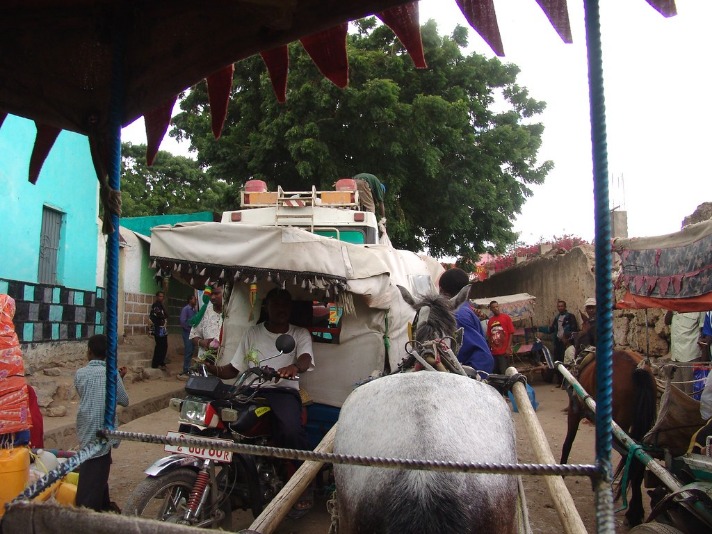
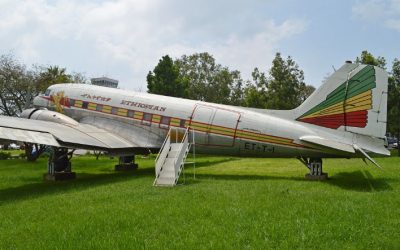
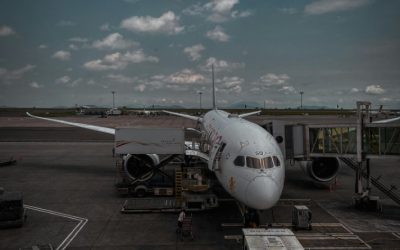

0 Comments